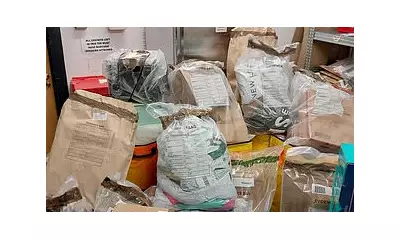
In a landmark national security decision that signals a hardening stance against organised crime, the Canadian government has officially designated the notorious Lawrence Bishnoi gang as a terrorist entity. The dramatic move places the violent syndicate in the same category as international terrorist organisations and represents a significant escalation in Canada's fight against gang-related violence.
Unprecedented measures against organised crime
Public Safety Canada confirmed the designation on Sunday, stating that the Lawrence Bishnoi gang now appears on the country's official list of terrorist entities. This classification grants law enforcement and financial institutions sweeping new powers to freeze the organisation's assets and pursue its members with enhanced counter-terrorism legislation.
The decision follows extensive investigation by Canadian security agencies, who have documented the gang's involvement in multiple high-profile violent incidents, including several prominent assassinations. Authorities have expressed growing concern about the group's sophisticated operations and transnational reach.
From criminal syndicate to terrorist entity
What distinguishes this designation is the government's recognition of the gang's activities as constituting terrorism rather than conventional organised crime. Security analysts note that the group employs systematic violence and intimidation to achieve political and ideological objectives, meeting the legal threshold for terrorist classification.
The move reflects a global trend of governments applying counter-terrorism frameworks to combat increasingly sophisticated criminal organisations that blur traditional boundaries between crime and terrorism.
Implications for law enforcement and security
The terrorist designation fundamentally changes how Canadian authorities can investigate and prosecute the gang's activities. Law enforcement agencies now have access to:
- Enhanced surveillance and intelligence-gathering capabilities
- Stronger asset freezing and financial investigation tools
- Increased maximum penalties for members and supporters
- Greater international cooperation opportunities
Security experts suggest this could set a precedent for how Western nations address similar organised crime networks operating within their borders.
International connections and concerns
Canadian security officials have highlighted the gang's extensive international connections, particularly its links to criminal networks in India and other jurisdictions. The terrorist designation enables more robust international cooperation in tracking and disrupting the organisation's global operations.
The decision comes amid increasing concern about transnational criminal networks exploiting global connectivity to expand their operations across multiple continents.
This bold move by Canadian authorities represents a significant shift in how democratic nations are choosing to confront the evolving threat posed by sophisticated criminal organisations that increasingly resemble terrorist groups in their methods and impact.





